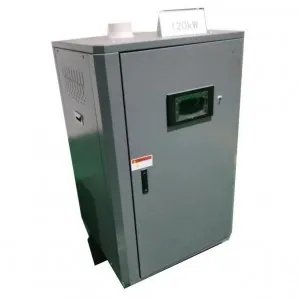- Afrikaans
- Albanian
- Amharic
- Arabic
- Armenian
- Azerbaijani
- Basque
- Belarusian
- Bengali
- Bosnian
- Bulgarian
- Catalan
- Cebuano
- China
- China (Taiwan)
- Corsican
- Croatian
- Czech
- Danish
- Dutch
- English
- Esperanto
- Estonian
- Finnish
- French
- Frisian
- Galician
- Georgian
- German
- Greek
- Gujarati
- Haitian Creole
- hausa
- hawaiian
- Hebrew
- Hindi
- Miao
- Hungarian
- Icelandic
- igbo
- Indonesian
- irish
- Italian
- Japanese
- Javanese
- Kannada
- kazakh
- Khmer
- Rwandese
- Korean
- Kurdish
- Kyrgyz
- Lao
- Latin
- Latvian
- Lithuanian
- Luxembourgish
- Macedonian
- Malgashi
- Malay
- Malayalam
- Maltese
- Maori
- Marathi
- Mongolian
- Myanmar
- Nepali
- Norwegian
- Norwegian
- Occitan
- Pashto
- Persian
- Polish
- Portuguese
- Punjabi
- Romanian
- Russian
- Samoan
- Scottish Gaelic
- Serbian
- Sesotho
- Shona
- Sindhi
- Sinhala
- Slovak
- Slovenian
- Somali
- Spanish
- Sundanese
- Swahili
- Swedish
- Tagalog
- Tajik
- Tamil
- Tatar
- Telugu
- Thai
- Turkish
- Turkmen
- Ukrainian
- Urdu
- Uighur
- Uzbek
- Vietnamese
- Welsh
- Bantu
- Yiddish
- Yoruba
- Zulu
Nov . 07, 2024 08:51 Back to list
High Efficiency 300000 BTU Boiler for Industrial Applications and Heating Solutions
Understanding the 300,000 BTU Boiler Efficiency and Applications
In the world of heating systems, boiler capacity plays a crucial role in determining the effectiveness and efficiency of a heating solution. One of the more significant options available in this domain is the 300,000 BTU boiler. BTU, or British Thermal Unit, is a metric used to measure the amount of heat energy needed to raise the temperature of one pound of water by one degree Fahrenheit. A 300,000 BTU boiler is thus capable of generating a substantial amount of heat, making it suitable for a variety of applications ranging from residential to commercial use.
Efficiency Ratings and Fuel Types
When evaluating a 300,000 BTU boiler, it’s essential to consider its efficiency ratings. Efficiency can vary significantly among different models, influenced by the technology used and the type of fuel that powers the boiler. Most modern boilers come equipped with efficiency ratings that comply with standards set by organizations such as the Department of Energy (DOE) and the Energy Star program. High-efficiency models can achieve ratings beyond 90%, providing significant savings on energy bills while reducing environmental impact.
These boilers can be powered by different fuel types, including natural gas, propane, oil, or even renewable sources like biomass. Natural gas is often preferred due to its cost-effectiveness and lower emissions compared to oil and coal. However, the choice of fuel may depend on availability and local infrastructure, so it is crucial for buyers to consider their specific circumstances.
Applications and Benefits
One of the main applications of a 300,000 BTU boiler is in commercial and industrial settings. Large warehouses, manufacturing plants, and multi-family residential buildings often require significant heating capacity to maintain comfortable temperatures during colder months. In such cases, a 300,000 BTU boiler can heat large areas effectively, catering to both space heating and hot water demands.
300000 btu boiler

The ability to efficiently generate a substantial amount of heat also makes these boilers suitable for heating systems in agricultural settings, such as greenhouse heating and livestock facilities. In these environments, maintaining optimal temperature levels is critical for plant and animal health, making a high-capacity boiler a vital investment.
Furthermore, the installation of a 300,000 BTU boiler can lead to improved workflow and productivity in commercial buildings. Employees are more comfortable in a well-heated environment, which can lead to increased morale and work output. Additionally, businesses can experience enhanced system reliability with a robust heating solution that can handle peak demands effectively.
Installation and Maintenance Considerations
Installing a 300,000 BTU boiler requires careful planning and consideration. Due to its size and capacity, proper sizing of the boiler room is essential, along with considerations for ventilation, fuel supply lines, and appropriate electrical connections. Hiring a qualified contractor for installation is recommended to ensure compliance with local codes and regulations.
Maintenance of a 300,000 BTU boiler is also critical to ensure longevity and efficiency. Regular checks, including the inspection of fuel lines, air filters, and the burner system, can prevent potential breakdowns. Additionally, annual servicing by a qualified technician can help keep the unit running smoothly and efficiently while prolonging its operational life.
Conclusion
In conclusion, a 300,000 BTU boiler represents a significant heating solution for various applications across both residential and commercial sectors. Understanding its efficiency ratings, potential applications, and maintenance needs is crucial for making an informed decision. When chosen and maintained properly, a 300,000 BTU boiler can provide reliable, efficient, and effective heating, fulfilling the demands of even the most extensive heating requirements. With energy efficiency and environmental considerations becoming increasingly important, investing in a high-quality boiler can also lead to long-term financial savings and a reduced carbon footprint. Whether you are looking to upgrade an existing system or invest in a new one, the 300,000 BTU boiler remains a strong contender in the field of heating solutions.
-
Premium Cast Iron Water Main Pipe: Durable, Corrosion-Resistant
NewsAug.03,2025
-
Durable Cast Iron Water Mains | AI-Optimized Systems
NewsAug.02,2025
-
High-Efficiency Propane Boiler for Baseboard Heat | Save Energy
NewsAug.01,2025
-
Premium Source Suppliers for Various Gray Iron Castings
NewsJul.31,2025
-
Durable Cast Iron Water Main Pipes | Long-Lasting
NewsJul.31,2025
-
High-Quality Cast Iron Water Main Pipe for Durable Infrastructure
NewsJul.30,2025


